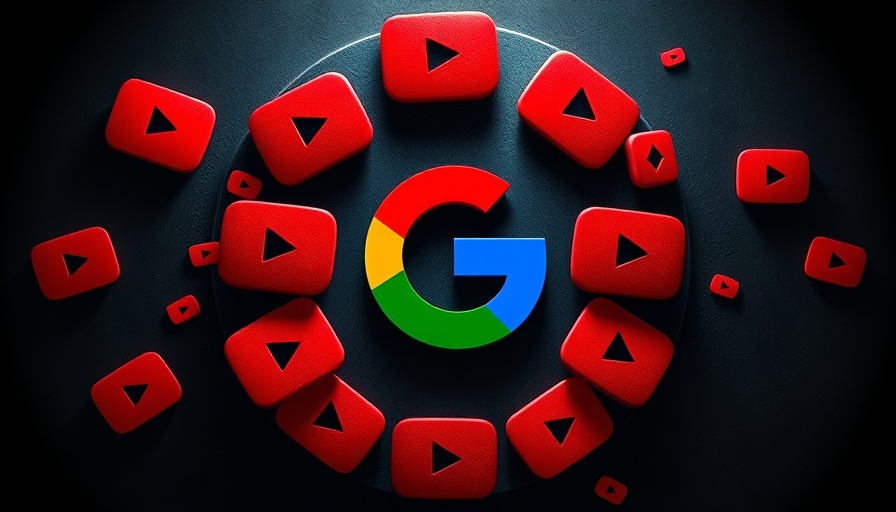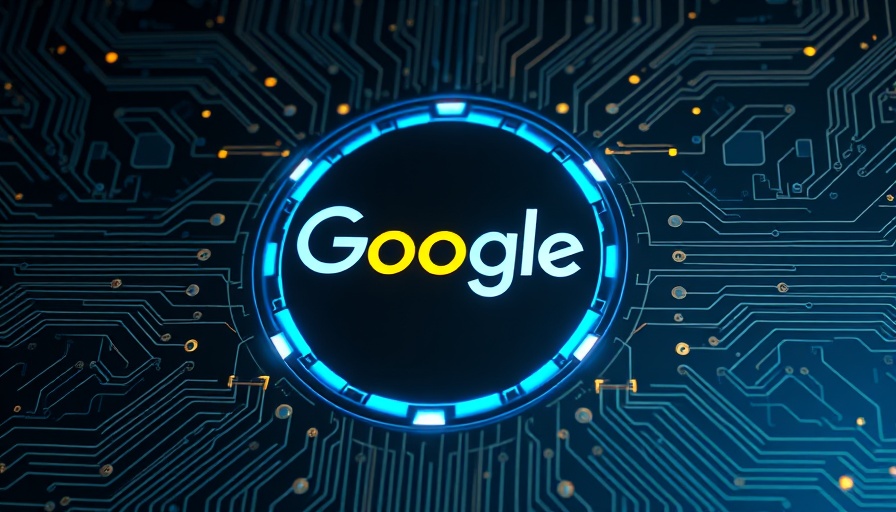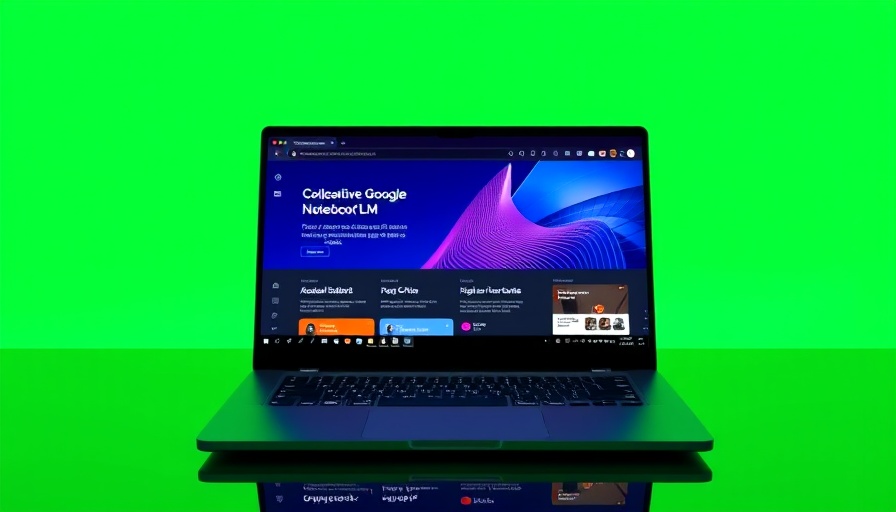
Is Google Facing an Existential Crisis?
As we navigate through 2025, whispers of an impending crisis surround Google, the tech giant synonymous with the internet itself. With lawsuits piling up and proprietary AI solutions failing to meet initial hype, many are questioning the sustainability of its search-centric business model. Yet, amidst this turmoil lies a narrative that reveals an untapped potential—one that may not hinge on artificial intelligence.
The Unseen Threats
Google's current woes aren't merely a matter of technological competition; they signify deeper issues within its core business structure. This $1.1 trillion ecosystem thrives on advertising revenue but is vulnerable to market shifts. Advertising has become more competitive with platforms like TikTok and emerging AI search alternatives. This shift parallels the struggles faced by once-dominant firms like Kodak and IBM, who faltered in the face of innovation. If Google fails to pivot effectively, it risks not just losing market share but being overshadowed entirely.
Does AI Spell Doom or Opportunity?
While many hail AI as the cornerstone of Google's future, the question remains: is it a threat or merely a tool? Google's past innovations—from its search algorithms to data management—demonstrated an impressive grasp of market trends. However, its recent attempts to leapfrog into AI aren't as effective as they seem. The public's lukewarm reception to Google’s AI products reveals a gap between expectation and reality, providing tech-savvy competitors an edge.
What Lies Ahead: Future Innovations
Is there a silver lining amidst Google's woes? Accumulated insights indicate that Google has the capacity to redefine its focus, leveraging its vast resources to improve customer experience through platforms currently underutilized. By diversifying its service offerings and investing in cutting-edge technologies, it can work back to prominence. Future predictions include possible partnerships that extend beyond mere algorithms—envision more integrations with smart technologies that revolutionize user experience.
The Power of Purposeful Adaptation
A universal truth emerges from Google's scenario: adaptation is paramount. Companies like Microsoft have shown that successful reinvention is possible, where investment in innovation yields dividends. Google must capitalize on its rich data environments, enabling a shift toward a more intuitive, user experience-centric model. This strategy can pave the way for success even in uncertain times.
For professionals in marketing and tech, this evolving landscape provides valuable lessons: engagement and innovation must go hand-in-hand. Understanding consumer behavior and embracing change will be vital to thriving amidst competition. Google's forthcoming strategies might just be the blueprint for others on the brink of transformation.
Conclusion: A Call to Action
In a world where giants can falter, Google's story serves as a reminder of the imperative to innovate purposefully. CEOs, marketing managers, and business professionals must take heed of this narrative, using it as a springboard to reevaluate their own strategies. As we explore our paths forward, we should not only consider technologies like AI but also the human-centric approaches that define our industries. Embrace adaptability, harness innovation, and remember: there's always a more profound lesson hiding beneath the surface.
 Add Row
Add Row  Add
Add 




 Add Row
Add Row  Add
Add 

Write A Comment